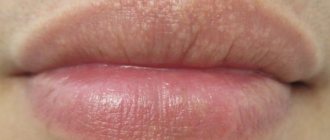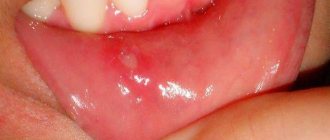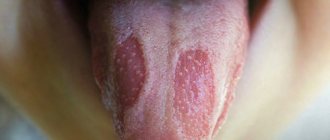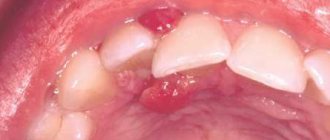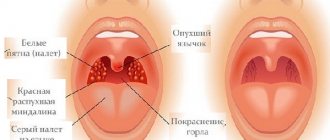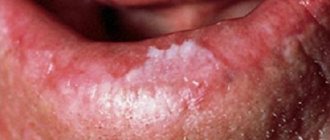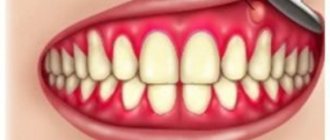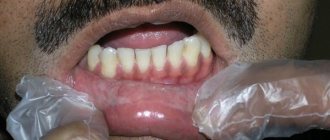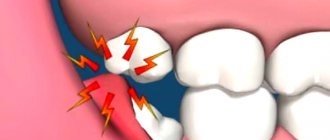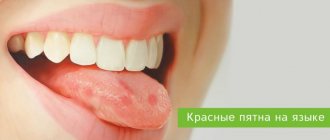Almost everyone is familiar with the condition when, during a cold, small grouped bubbles with liquid appear on the lips, which itch and hurt. This is herpes simplex, caused by the herpes simplex virus type 1 or 2. Both types of the virus can cause lesions of the skin and mucous membranes on the body in one or the other localization, for example, after infection with the herpes simplex virus type 1 with localization of the rash on the lips, herpes type 1 can be localized on the genitals during orogenital contact. Some types of herpes viruses infect a wide variety of places. Almost all adults on the planet are carriers of the herpes simplex virus - the virus actively spreads and remains in the human body throughout his life.
Methods of transmission of the herpes virus
The viability of the virus in the external environment at room temperature and normal humidity persists for 24 hours, at a temperature of 50-52 °C it is inactivated after 30 minutes, and at low temperatures (−70 °C) the virus is able to remain viable for 5 days. On metal surfaces (coins, door handles, water taps) the virus survives for 2 hours, on damp sterile medical cotton wool and gauze - during the entire drying time (up to 6 hours). The herpes simplex virus is most easily transmitted through direct contact with damaged tissue or body fluids of an infected person. Transmission of the virus is also possible during periods of asymptomatic carriage of the virus. The herpes virus is not able to penetrate the intact stratum corneum of the skin, which is due to the absence of specific receptors on it.
Surrender who can
Before you begin treatment, you first need to make sure that it is really the herpes virus type 1. Because blisters on the lips can also occur when infected with the genital herpes virus (type 2), which is already more dangerous. Therefore, it is better to take a test such as PCR (polymerase chain reaction). The material you will need is blood and the contents of the vial. This study will help determine the type of virus (there are 8 types in total), as well as determine the degree of infection activity. But it’s easier to donate blood for antibodies to herpes simplex viruses types 1 or 2. If the virus is in the body, there will be antibodies.
And if relapses of the disease (primarily genital herpes) occur frequently and cause a lot of suffering, then antiviral medications will have to be taken for several months. Immunomodulatory therapy, antiherpetic vaccine and ozone therapy also play a role in complex treatment.
Silent roommate. When does herpes cause sore throat? More details
Herpes on the lips
Oral herpes is easily diagnosed only in the presence of external manifestations - wounds or ulcers. In this case, it will not be difficult to diagnose the disease yourself by comparing the herpes on the lip with a photo on the Internet. However, in the early stages there are no symptoms of the disease, and herpes can only be diagnosed using laboratory methods. Prodromal symptoms, which appear even before the appearance of visible herpetic lesions, will make it possible to differentially diagnose the symptoms of infection with the herpes virus from, for example, allergic stomatitis. If the disease does not appear inside the mouth, primary orofacial herpes may be mistaken for impetigo or a bacterial infection. In addition, mouth ulcers (canker sores) can also look like oral herpes, but do not cause blisters. After contact with the source of infection, viral particles enter the skin epithelial cells, then the virus migrates into nerve cells by merging the outer shell of the virus with the cell membrane, and viral DNA is released inside the cell. Next, it is transported along the dendrites of the nerve endings to the body of the sensory neuron, located in the sensory ganglion, where it is built into its genetic apparatus forever. After the virus penetrates, the process of its active reproduction in the cell begins—persistence. Viral lesions of the lips are characterized by persistence of the virus in the neurocytes of the sensory ganglia of the trigeminal nerve. Most people reproduce and shed the virus immediately after infection without symptoms. This may occur more than a week before or after the first symptoms appear in 50% of cases. The pathogen multiplies intensively in it. Focal death of the epithelium occurs: cells increase in size, then die, forming foci of dead cells. The duration of the period of viral shedding when the virus is localized on the lips in herpes simplex type 1 is 6-33 days, and in herpes simplex type 2 it is 1 day. After infection, the body begins to synthesize antibodies against a specific type of herpes virus, preventing the spread of infection. In case of infection with herpes virus type 1, such antibody production will protect the body from other infectious processes caused by this virus, such as genital herpes, herpetic keratitis and felon.
Antibodies that are produced after the initial herpes infection prevent infection with the same type of virus: people who have had orofacial herpes type 1 do not develop whitlow or the genital herpes caused by herpes type 1.
Memo
It must be remembered that when herpes rashes appear, a person becomes acutely contagious. Moreover, not only those around him can suffer, but also the sick person himself. For example, from a lesion on the lips with dirty hands the virus can be carried into the eyes or genitals.
Therefore, it is important to follow the following rules.
- Do not touch lips affected by rashes. If you touch them, wash your hands thoroughly.
- Use your own towel and utensils.
- If your lips are affected, do not squeeze the blisters or pick off the scabs. This may cause additional skin infection.
- Refrain from kissing and oral-genital contact.
- If you wear contact lenses, do not wet them with saliva to moisten them.
- Apply antiviral cream to your lips not with your fingers, but with cosmetic sticks.
Treatment of herpes on the lips
There is currently no cure for herpes. Available drugs only suppress the replication of the virus, but do not remove fragments of viral DNA from neurocytes. Therefore, there is always a possibility of recurrent rashes, especially with immunodeficiencies (for example, with HIV infection or tumors). The use of antiviral drugs can suppress the activity of the virus and alleviate symptoms. Treatment of herpes on the lips can take a long time - the wound can heal much faster if left undisturbed, but in the case of lips this is almost impossible. Antiviral ointments such as acyclovir will help speed up the healing process. Acyclovir and valacyclovir have been proven to be effective in the treatment of facial herpes (on the lips), including in cancer patients. When applied topically, acyclovir, penciclovir, and docosanol are effective for the treatment of facial herpes. These drugs are approved for sale without a doctor's prescription. They must be used regularly, while observing hygiene rules: using only personal utensils, towels, and so on. Alternative methods act indirectly, having only a general strengthening, anti-inflammatory effect. Echinacea preparations stimulate the immune system. Lysine, being an essential amino acid, is a plastic material for tissue regeneration. Zinc ointments, when applied to the skin, have an anti-inflammatory, antiseptic and drying effect, preventing the penetration of the virus and accelerating the healing of ulcers. This also includes aloe vera extract and propolis as natural anti-inflammatory agents. If the symptoms of the disease do not go away for a long time, you should consult a doctor who will recommend how to treat herpes on the lips more effectively and avoid complications.
Maybe I should donate blood to find out whether I am in the active phase of the disease or not?
There are antibody tests that can be used to find out whether you have already had an illness or are in the active phase of the disease. Memory antibodies that store the data that you have been ill are called IgG. And others - IgM, show that you are sick now.
But the British Herpes Virus Association and the UK National Health Service consider these tests for diagnosing both types of HSV to be unreliable and do not recommend taking them. The American CDC also does not recommend self-testing for the herpes virus. They are needed only by certain groups:
- people with frequent relapses of herpes;
- partners of people infected with the herpes simplex virus;
- people with HIV infection or at high risk of HIV infection$
- those who are tested for STIs.
You need to remember that you are almost always contagious, but to a lesser extent when there are no symptoms, to a greater extent when they are present.
Herpes and weakened immunity
During primary infection, IgM antibodies are formed, and during relapses, IgG and IgA are formed. Due to the persistence of the virus in infected people, the immunity is non-sterile. In some periods, under the influence of various factors, the disease may worsen and manifest itself in the form of well-known symptoms. In addition, the herpes virus itself is capable of inducing immunodeficiency. The level of immunity significantly affects the number and severity of relapses. After the active infection stage, the virus remains in an inactive state to live in the sensory ganglia and ganglia of the autonomic nervous system. No viral particles are produced in this phase. The frequency and severity of outbreaks varies widely among individuals. Some people develop ulcers that do not heal for weeks, while others experience only minor itching and burning for a few days. There is some evidence that heredity influences relapse rates. In the region of chromosome 21, there is a zone that includes 6 genes, which is associated with the frequency of outbreaks. The severity of outbreaks and their frequency decreases over time. After a few years, some people will have no symptoms at all, although the virus will still be shed and able to spread to others. In people with defective immune systems, outbreaks will be more severe, longer, and more frequent. Outbreaks may occur in previous locations or in close proximity to the nerve endings of infected ganglia.
You don't have to catch a cold
Once it appears in the body, herpes does not disappear. For most people, it sits quietly in the cells of the nervous system, exacerbating a couple of times a year, or even less often. Frequent relapses occur in only 10-20% of infected people. Each such case must be dealt with separately by an immunologist. After all, an infection can have a destructive effect on all systems of the body. There is also data on the oncogenic properties of herpes.
The virus is activated by any decrease in immunity, so “fevers” often occur against the background of flu and colds. However, the appearance of painful blisters on the lip is not a symptom of respiratory infections, but an independent pathology. And in the same way, herpes can worsen after a protracted serious illness or from stress, as a result of severe overheating, great fatigue, hypovitaminosis and other negative aspects.
Why is herpes in the ear dangerous? And how to distinguish pathology from habitual otitis Read more
Sources
- Koutsoumourakis A., Gagalis A., Fotoulaki M., Stafylidou M. Rare Etiology of Odynophagia in a Female Adolescent. // Case Rep Gastroenterol - 2021 - Vol15 - N1 - p.352-358; PMID:33790725
- Hammerl V., Parlar B., Navarini A., Gantenbein L., Väth H., Mueller SM. Mucosal side effects in patients treated with topical imiquimod-A scoping review of the literature. // Dermatol Ther - 2021 - Vol34 - N1 - p.e14355; PMID:32990395
- Brandão TB., Gueiros LA., Melo TS., Prado-Ribeiro AC., Nesrallah ACFA., Prado GVB., Santos-Silva AR., Migliorati CA. Oral lesions in patients with SARS-CoV-2 infection: could the oral cavity be a target organ? // Oral Surg Oral Med Oral Pathol Oral Radiol - 2021 - Vol131 - N2 - p.e45-e51; PMID:32888876
- Altalhab S., Aljamal M., Mubki T., AlNomair N., Algoblan S., Alalola A., AlJasser MI., Alissa A. Q-switched 532 nm Nd:YAG laser therapy for physiological lip hyperpigmentation: novel classification, efficacy , and safety. // J Dermatolog Treat - 2020 - Vol - NNULL - p.1-5; PMID:32748662
- Akagi T., Mukai T., Fujita S., Yamamoto T., Fukuda M., Morita Y. Severe oral stomatitis due to reactivation of herpes simplex virus type 1 in a methotrexate-treated patient with dermatomyositis. // Immunol Med - 2021 - Vol44 - N1 - p.56-60; PMID:32649847
- Marcocci M.E., Napoletani G., Protto V., Kolesova O., Piacentini R., Li Puma DD., Lomonte P., Grassi C., Palamara AT., De Chiara G. Herpes Simplex Virus-1 in the Brain: The Dark Side of a Sneaky Infection. // Trends Microbiol - 2021 - Vol28 - N10 - p.808-820; PMID:32386801
- Gfeller CF., Wanser R., Mahalingam H., Moore DJ., Wang X., Lin CB., Shanga G., Grove G., Rawlings AV. A series of in vitro and human studies of a novel lip cream formulation for protecting against environmental triggers of recurrent herpes labialis. // Clin Cosmet Investig Dermatol - 2021 - Vol12 - NNULL - p.193-208; PMID:30962701
- Pursanova AE., Kazarina LN., Guschina OO., Serhel EV., Belozyorov AE., Abaev ZM. . // Stomatologia (Mosk) - 2021 - Vol97 - N5 - p.23-26; PMID:30346416
- Begolli Gerqari A., Ferizi M., Kotori M., Daka A., Hapciu S., Begolli I., Begolli M., Gerqari I. Activation of Herpes Simplex Infection after Tattoo. // Acta Dermatovenerol Croat - 2021 - Vol26 - N1 - p.75-76; PMID:29782308
- Kłysik K., Pietraszek A., Karewicz A., Nowakowska M. Acyclovir in the Treatment of Herpes Viruses - A Review. // Curr Med Chem - 2020 - Vol27 - N24 - p.4118-4137; PMID:29521211
Herpes simplex and its causes
Frequent rashes on the lips are evidence of the presence of the herpes simplex virus type I in the body. HSV is the most common virus on earth; more than 80% of the population is infected with it.
Frequent exacerbations of herpes on the lips are associated with reduced immunity for various reasons, with hypothermia, overheating, stress, poor diet, chronic diseases, endocrine pathologies, and climate change.
For prevention, it is necessary, if possible, to minimize the effect of provoking factors and carry out immunostimulating and antiviral therapy.
Most people become infected in infancy from infected patients through direct contact (through kissing, sharing utensils) or through airborne droplets.
The viral infection penetrates nerve cells and remains in the body throughout life. It is incurable and existing vaccines are ineffective against it.
Herpetic infection has no symptoms, and people often do not even suspect that they are infected. The disease manifests itself in the form of rashes on the lips and can occur against the background of other diseases when the patient’s body is weakened.
Blood test for herpes
Herpes simplex virus (HSV) types 1 and 2 cause genital infections and are the most common cause of genital ulcers.
During primary infection, a stable immunity to infection is developed; the virus can go into a latent (hidden) form, but will still be present in the body. Frequent or rare relapses of HSV indicate the state of the human immune system.
If herpes on the lips appears once every 3 months or does not go away for a long time, this indicates too low immunity, and, as a result, the person is exposed to recurrent colds and infectious diseases.
If a herpes rash appears on the lips more than 6 times a year, even in the absence of other symptoms, you should consult a doctor to find out the causes and possible pathologies in the body.
The most common causes of immune suppression that can cause rashes on the lips are:
- frequent hypothermia of the body, especially at high humidity;
- overheating in the sun (solar herpes);
- frequent colds , viral, infectious diseases;
- abuse of alcoholic and caffeinated drinks;
- frequent stress or depression that negatively affects the nervous system;
- unbalanced diet - large amounts of fats and carbohydrates, lack of vitamins, fiber, microelements;
- exhausting diets , refusal of large amounts of food;
- chronic diseases of the gastrointestinal tract;
- long-term use of antibiotics ;
- cancer, diabetes mellitus , AIDS;
- menstrual irregularities ;
- climate change .
Which doctor treats herpes
Herpes is a contagious disease of viral etiology, manifesting itself in the form of painful blistering rashes of various locations.
The most common strain of herpes simplex type I is a virus that penetrates the nervous system, as it activates the body's defense system.
There are no obvious symptoms of the disease. Usually only at the first manifestation of infection is observed:
- fever it appears);
- tingling and thickening of tissue at the site of localization;
- general weakness , body fatigue.
Herpes rashes can appear in the corners of the mouth, on the inside of the lips, inside the nose on the mucous membrane, on the nasolabial triangle.
What to do to treat relapses
It is impossible to completely get rid of the virus, but it is necessary to treat and prevent the causes that contribute to the development of the disease and frequent relapse.
Self-medication is dangerous with complications!
Attention
Despite the fact that our articles are based on trusted sources and have been tested by practicing doctors, the same symptoms can be signs of different diseases, and the disease may not proceed according to the textbook.
Pros of seeing a doctor:
- Only a specialist will prescribe suitable medications.
- Recovery will be easier and faster.
- The doctor will monitor the course of the disease and help avoid complications.
find a doctor
Do not try to treat yourself - consult a specialist.
Treatment is carried out by an infectious disease specialist together with an immunologist. The patient undergoes examinations to help determine the cause of the weakening of the defense system.
First of all, diseases that may cause suppression of the immune system should be identified and treated.
Treatment of herpes is carried out in three phases:
- erotropic therapy , which helps suppress the DNA of viral cells;
- pathogenetic therapy - treatment of functional disorders of organs, restoration of metabolism, strengthening of the immune system;
- use of antiviral agents .
Treatment of herpes
Skin herpes in adults develops mainly due to infection of the body with a type 1 virus.
Antiviral drugs are used for 5 days. Ointments and creams are applied locally to the mucous membrane of the mouth and nose to promote faster healing.
You should not touch the rash; be sure to use separate utensils and personal hygiene items (since the virus is contagious).
Prevention of frequent relapses of herpes
You can prevent the regular occurrence of herpetic rashes by following certain preventive measures.
First of all, experts recommend washing your hands more often, especially after visiting public places, in the off-season, when there is increased activity of pathogenic microorganisms.
If someone in the family is diagnosed with a disease, they must be provided with separate hygiene products, a towel and linen. It is also prohibited to use his things for your own purposes.
During sexual intercourse, contraceptives should not be neglected. This is especially important when the partner has a confirmed history of illness.
It is also advisable not to contact the patient until the signs of the pathological process completely disappear.
